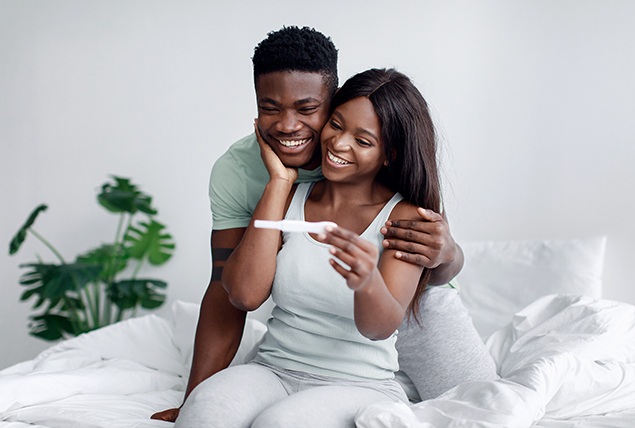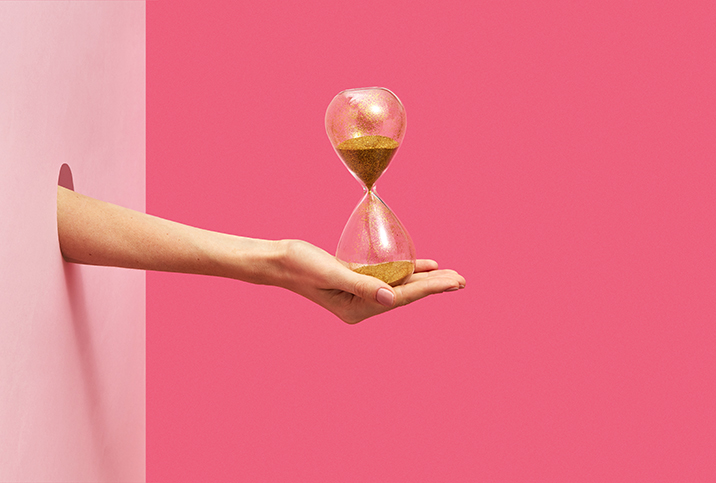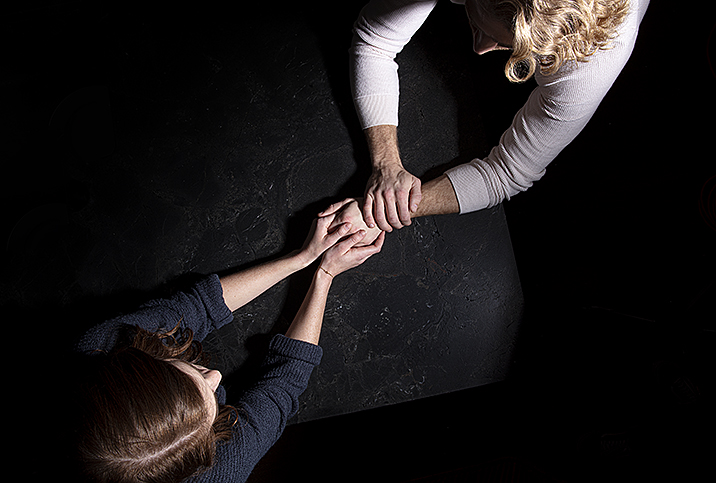Between the Pages: 'So When Are You Having Kids?' Weighs Tough Choices

Author Jordan Davidson draws on more than 100 original interviews and numerous research studies to provide a comprehensive look at the ways to build a family or lead a child-free life in her new book.
The full title of the book is "So When Are You Having Kids?: The Definitive Guide for Those Who Aren't Sure If, When or How They Want to Become Parents," and it's an inclusive guidebook for people who want to make an informed decision regarding having children.
An award-winning journalist with more than a decade of experience covering health topics, Davidson is the editorial director of Health.com. Her work has appeared in Men's Health, Teen Vogue, BuzzFeed, Verywell Family, Prevention and Upworthy, among other print and online publications.
In this exclusive interview with Giddy, Davidson discusses what makes her family planning book unique, the high costs of child-rearing, the benefits and risks of egg freezing, and more.
Editor's note: This interview has been edited for length and clarity.
There are countless parenting books and books about how people can get pregnant. Did you find there weren't many books focused on whether to have kids in the first place?
Davidson: In my experience, there really aren't many books to help people who are on the fence. Usually, when books are written about deciding whether or not to have children, the assumption is you've decided you want children, so now it's about preparing you for parenthood. Even in parenting books, they're typically written for women—straight, white women. So it's really hard to find something inclusive.
At the time I was trying to make these decisions for myself, I was very early in a relationship where I wasn't even sure it was the relationship [in which] I wanted to have kids. And did I want to have a kid? I felt a bit more on the fence. I had to make a decision for health reasons, and I thought I wanted to have kids but not at the age at which I was trying to decide. That was really the key factor for me.
I was looking for books, and most of the books I found were for people who were married or in long-term relationships who were ready to take the next step. That really didn't feel like it was applicable to my situation. I don't think it's applicable to a lot of people's situations, because a lot of people start thinking about if they want to have kids well before they're ready to have kids. They're thinking, "If I go to grad school and I'm going to be in school for seven years, then when am I having children?" And so to only create resources for people who are immediately ready to have children really felt like an oversight to me.
What do you think are the primary reasons fewer people are having children?
The way researchers look at population growth is with an understanding that to maintain the population, couples have to have an average of 2.1 children. That's called the rate of replacement. The rate at which people are having children right now is 1.6 children. The population isn't going to stay the same size. It's going to shrink because fewer people are having kids.
I think a lot of the reason why fewer people are having kids really has to do with finances and trying to feel comfortable. People want to feel comfortable in their decision because they want to know it's not going to change their lives in a way that they would suffer. People don't want to face more financial or personal hardships than they already have on their plate. They want to give their children as good of a childhood or better than the one they had.
A lot of the issues young people are facing is not being able to afford a home or rent increases. In the news, we're hearing tons about layoffs. With economic insecurity, people are questioning their own futures and livelihood, and then feeling uncertain about bringing another person into that scenario. Climate change is another big factor that weighs heavily on people. I think the more we see these weather events of extreme heat or cold, the more people are thinking, "Oh, wow, if it's this bad now, what's it going to look like in 50 years?"
It's becoming more acceptable to say you don't want to have children. Not everyone feels a push toward parenthood, and we're seeing that conversation normalize a lot more. Some people are choosing to opt out because they don't feel as if parenthood is for them. For them, it would be selfish to bring a child into the world when they don't really want one.
The cost to raise a child to age 18 in the United States is estimated at about $300,000. From your reporting, how common was cost a determinant in choosing whether to have kids?
Most people who I spoke with expressed concern about finances. It costs upward of $300,000 now for most middle-class families to raise a child. And it costs about a third of that, tack on another $100,000, for supporting your children in adulthood. You're looking at almost half a million dollars in having a child.
Even for people who are living comfortably, adding a child and the cost of daycare, in some places, can cost more than rent, upward of $15,000 a year. People are saying, "I'm comfortable now. It took me a while to get comfortable or established, and this would change the dynamic." People who are comfortable are questioning whether or not they want to take on that hardship.
We know how difficult [parenthood] is, especially in the United States, where there is no mandated paid parental leave and it's hard to be a working parent. Most families need both parents working now. People are really second-guessing that choice if they don't feel strongly about kids.
A lot of people who I spoke to were on the fence because that was the focus of the book. For people who do want to have children, it was more an attitude of, "We'll figure it out. We'll make cuts." I would say more than 90 percent of the people I spoke to expressed concern about finances. And for people who did go on to have children, the attitude was often, "You're never going to be prepared. You make sacrifices where you need to."
There were people who delayed having children and had them in their 30s or later so that they could become more financially prepared. Right now, the group that's having the most children is age 29 to 34, and so part of the reason why we're seeing people wait longer and longer is so they can prepare and become more financially comfortable, because people in general just don't want to struggle.
For the single woman in her 30s who knows she wants kids but hasn't met a partner and hears her 'biological clock' ticking, what general guidance would you have?
I would definitely encourage people to do their research and consider egg freezing. There's a reason I went into so much detail about fertility in the book, because people are delaying parenthood, and with IVF [in vitro fertilization] and egg freezing, everyone just assumes, "OK, I can do that when the time is ready when I'm 35 or 40, and it's going to work."
Unfortunately, that's not the case. We don't even have great information about the success rates of egg freezing because so many people who freeze their eggs never end up using them, because they meet someone and they get pregnant naturally, so those eggs end up sitting in the freezer and nothing happens.
You also can't assess anything about the quality of the egg from the egg itself. There's no guarantee that when you go on to fertilize those eggs they will become embryos or that those embryos will be of a quality high enough to achieve pregnancy. It really is a financial gamble. I'm not saying all that to discourage people from doing egg freezing, because I have done fertility preservation myself and I think it's a really powerful tool. What I'm saying is it's very expensive and not guaranteed.
I've heard a lot of stories from people who either tried to do fertility preservation later in life and were surprised they didn't get as many eggs as expected, or when they went to fertilize the eggs, they weren't high quality. They didn't end up with enough embryos or those embryos didn't result in pregnancy. For people who are considering preserving their fertility, you have to really prepare yourself for the fact that, yes, you are doing something that can buy you more time, but you also don't know and it may not work.
I think that's why some women who are ready to build their families but may not have a partner use donor sperm. They can then fertilize those eggs and see how many become embryos. They can see what quality those embryos are to know if they have to do additional freezing cycles. Some people are choosing not to freeze eggs and are instead freezing embryos so they have a better idea of their fertility. Of course, if they meet someone later in life, they may not want to use those embryos because they were made with someone else's sperm.
It's a really hard and personal choice. It's definitely worth considering. But like with anything, if you're going to buy something for $20,000, you would probably do a lot of research beforehand. I always encourage people to become familiar with egg freezing and its success rates so that they can be prepared, and potentially freeze more eggs than they would otherwise to increase those chances.


















